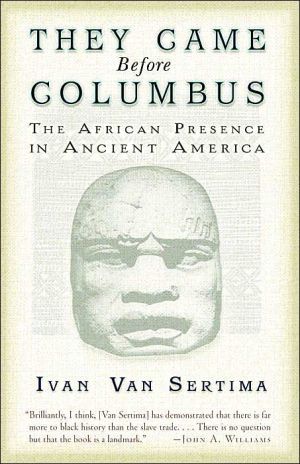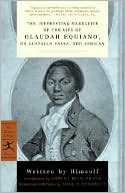Caetana Says No: Women's Stories from a Brazilian Slave Society
Here are the true and dramatic stories of two nineteenth-century Brazilian women - one young and born a slave, the other old and from an illustrious planter family - and how each in her own way sought to have her way: The slave woman struggled to avoid an unwanted husband; the woman of privilege assumed a patriarch's role to endow a family of her former slaves with the means for a free life. But these women's stories cannot be told without also recalling how their decisions drew them ever...
Search in google:
Two nineteenth-century Brazilian women struggle to lead a life on their own terms. Booknews In the first story, a young woman newly emancipated refuses to marry at her former owner's instruction. In the second, a wealthy matriarch tries to endow a family of her ex-slaves with resources for a free life. Lauderdale draws from legal and other documents to tell as much of the stories as can be known. Annotation c. Book News, Inc., Portland, OR (booknews.com)
List of Maps, Illustrations, Charts, and TablesAbbreviations Used in the FootnotesNote on Brazilian Spelling and CurrencyAcknowledgmentsPrologueMapsThe First StoryCaetana Says No: Patriarchy Confounded1Settings4Workers17Family26Godparents44Captain Tolosa49Caetana56Annulment Denied62Epilogue72Sample Documents75Luis Mariano de Tolosa's Household, 183075Manuel da Cunha de Azeredo Coutinho Souza Chichorro's Household, 183580The Second StoryInacia Wills Her Way: Patriarchy Confirmed83The Making of the Will85Choosing Heirs111The Will Revealed122The Contract134Werneck's Sense of Order142Epilogue157Sample Documents159Inacia's Will, 1857159Francisca's Will, 1849165Bibliography170Index178
\ BooknewsIn the first story, a young woman newly emancipated refuses to marry at her former owner's instruction. In the second, a wealthy matriarch tries to endow a family of her ex-slaves with resources for a free life. Lauderdale draws from legal and other documents to tell as much of the stories as can be known. Annotation c. Book News, Inc., Portland, OR (booknews.com)\ \ \ \ \ From the Publisher"Two women, different roles, both shaking the structures of established male authority through the intransigence of their personal moral decisions. In this marvelous book Lauderdale Graham retrieves two sinuous stories from ecclesiastical and legal archives, and through their close analysis lays bare the stresses, ambivalences and the surprising elasticity of the slave system as practiced in a river valley in southeastern Brazil during the middle decades of the nineteenth-century. 'Brazilian Slavery' will never look the same again." Inga Clendinnen, Reader in History Emeritus at La Trobe University\ "Caetana is a finely crafted book on women's lives under patriarchal planters. Readers will appreciate the author's vivid descriptions and analysis of typical Brazilian social customs and gender roles of the nineteenth century. The short length of the book combined with photographs will make this especially attractive for classroom use." The Americas\ "This is a fascinating study of gender, slavery and patriarchy, written from the perspective of two remarkable, and at the same time so different, women. It combines imaginative research, engaging narrative, and solid thinking, opening a resonant new perspective on the historiography of nineteenth-century Brazil." Joao Jose Reis, Universidade Federal da Bahia\ "Two women, different roles, both shaking the structures of established male authority through the intransigence of their personal moral decisions. In this marvelous book Lauderdale Graham retrieves two sinuous stories from ecclesiastical and legal archives, and through their close analysis lays bare the stresses, ambivalences and the surprising elasticity of the slave system as practiced in a river valley in southeastern Brazil during the middle decades of the nineteenth-century. 'Brazilian Slavery' will never look the same again." Inga Clendinnen, Reader in History Emeritus at La Trobe University\ "Sandra Lauderdale Graham's lucidly written and meticulously researched study of women in a slave society calls to mind novelist L.P. Hartley's observation that "the past is a foreign country:they do things differently there." A fascinating read set in the expanding coffee economy of nineteenth-century Brazil, this book links the lives of two women, Caetana and Inacia, who chose to act in ways that subtly challenged the men who held power in their lives. By piecing together their lives and choices, Lauderdale Graham vividly and memorably depicts the complex and competing intersections of gender, race, family, and property that characterized Brazilian slavery." Alida C. Metcalf, Trinity University\ "This is a fascinating study of gender, slavery and patriarchy, written from the perspective of two remarkable, and at the same time so different, women. It combines imaginative research, engaging narrative, and solid thinking, opening a resonant new perspective on the historiography of nineteenth-century Brazil." Joao Jose Reis, Universidade Federal da Bahia\ "By exploring two mysteries that can't be fully solved, by puzzling over small kindnesses and betrayals in two plantation households, we learn the grammar of rules and exceptions that made up Brazil's nineteenth-century system. These women's predicaments show us the flexible harshness of whimsical, 'cordial' domination in agrarian Brazil." Dain Borges, University of Chicago\ "Sandra Lauderdale Graham's lucidly written and meticulously researched study of women in a slave society calls to mind novelist L.P. Hartley's observation that "the past is a foreign country:they do things differently there." A fascinating read set in the expanding coffee economy of nineteenth-century Brazil, this book links the lives of two women, Caetana and Inacia, who chose to act in ways that subtly challenged the men who held power in their lives. By piecing together their lives and choices, Lauderdale Graham vividly and memorably depicts the complex and competing intersections of gender, race, family, and property that characterized Brazilian slavery." Alida C. Metcalf, Trinity University\ "Graham has given us a wonderfully insightful glimpse into the history of women in postcolonial Brazil.... This is one of the most lucid and welcome additions to the literature on the subject published in recent years. Highly recommended." Choice\ "Lauderdale Graham should be commended for bringing to the attention of English-speaking readers such rich and thought-provoking details of nineteenth-century Brazilian slave society and culture." American Historical Review\ \ \








